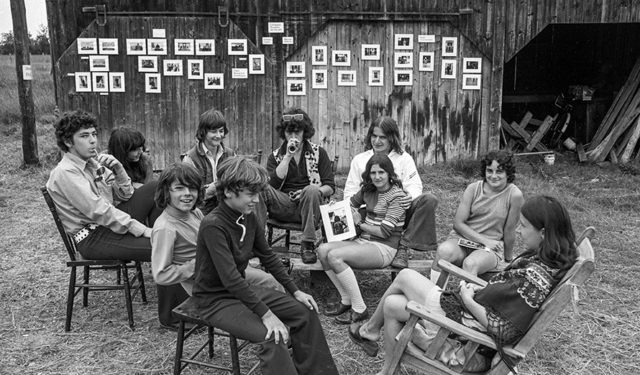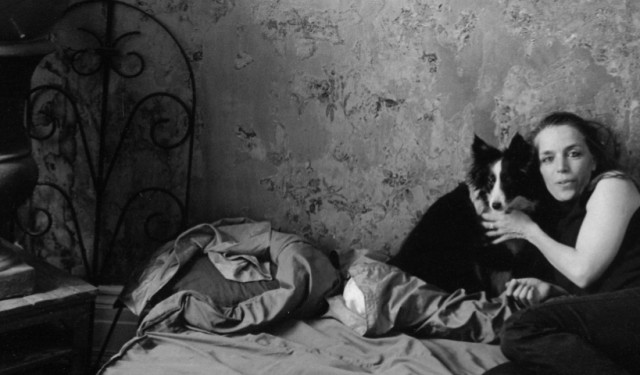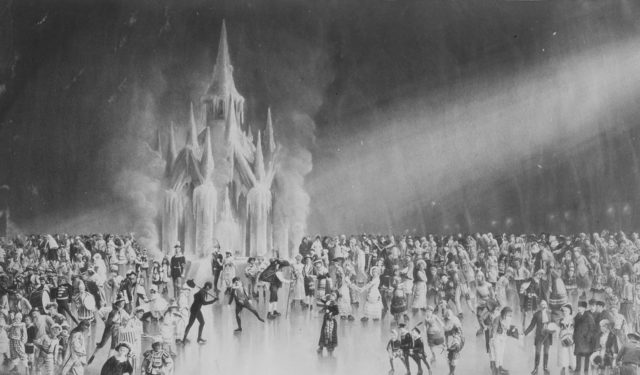Series of talks: Reviewing Disraeli
The Museum hosted an afternoon of talks that brings together several individuals who have reflected on the historical impact of the Disraeli project.
November 4, 2022
To accompany the exhibition Disraeli Revisited – Chronicle of an Event in Quebec Photography, the Museum hosted an afternoon of talks that brings together several individuals who have reflected on the historical impact of the Disraeli project.
On november 4, 2022, the talks has investigated the different issues raised by this photographic event, namely the development of documentary photography as an art form, the project’s public dissemination and reception, the personal and political motivations of the participants, the group’s methodological approach, and the broad cultural significance of the Disraeli images.
Panel 1
THE LIFE OF IMAGES
Presented by Pierre Dessureault, 5 : 46
The images of the Disraeli project were born and lived in a particular context. Our role here is not to commemorate it by pandering to nostalgia, even less to petrify it by freezing it in time, but to make a rough sketch of the zeitgeist and of the people and institutions who imprinted their character of radical newness for the era onto these photographs produced 50 years ago.
Pierre Dessureault is an expert on Canadian photography who has produced over 50 exhibitions and published extensively during his time at the National Film Board’s Photography Department from 1971 to 1984 and at the Canadian Museum of Contemporary Photography from 1985 to 2007. He was responsible for retrospectives dedicated to the work of Sam Tata, Serge Tousignant, Michel Campeau and Pierre Boogaerts, as well as an overview of 1960s Canadian photography. Since 2011, he has collaborated with the magazine Ciel variable
DISRAELI’S TEACHINGS
Presented by Mona Hakim, 36 : 23
The Disraeli project and the debate it would spark opened up a space for reflection on the way of positioning documentary photography as an artistic or subjective practice in the 1970s, an era of major transformations on Quebec’s photography scene. Fifty years later, could we consider Disraeli as an influential project for contemporary documentary practices? How can we situate, analyze, and teach this historical corpus of images today with respect to the current context and social photographic aesthetic ?
Mona Hakim is an art historian, critic, author and curator with a master’s in art studies from UQAM. For several years, her research has focused on issues related to contemporary and current photography. She has written many works of criticism and essays, including most recently for the monographs of Chuck Samuels, Isabelle Hayeur and Bertrand Carrière. As a curator, she has produced over 25 exhibitions. She taught art history and photographic history at college from 1995 to 2015.
DISRAELI, OR THE ANECDOTAL NATURE OF THE DOCUMENTARY AESTHETIC IN PHOTOGRAPHY
Presented by Alexis Desgagnés, 53 : 49
In 2012, to mark the 40th anniversary of the Disraeli project, Alexis Desgagnés invited a handful of artists working in photography to return to Disraeli. Although nothing came of the project, it was nonetheless an occasion to meet with residents of the small town in Chaudière-Appalaches. Looking back at this aborted project via a few anecdotes, the speaker hypothesizes on the anecdotal nature of the documentary aesthetic in photography.
Alexis Desgagnés’s polymorphic research explores various facets of creativity and interrogates the position of Quebec culture in history. With the support of the Conseil des arts et des lettres du Québec, he published a first book in 2015, titled Banqueroute (Les Éditions du Renard), a collection of photography and poetry. His second art book, Ammoniaque, was published by Éditions du renard in 2021.
Panel 2
THE RANDOMNESS OF NECESSITY: AT THE ROOTS OF A PROJECT
Presented by Maryse Pellerin, 1 : 14 :22
The capital H history having been recorded, this speaker’s goal is to address the smaller history, the one always hiding behind ambitious projects. Fifty years after Disraeli, Maryse Pellerin examines the series of coincidences that led to the project’s development, before turning to the group dynamic that emerged on site. To end, she takes a personal look at the aftermath of Disraeli.
Maryse Pellerin was born in Ottawa. In 1972, she participated as an archivist on the Disraeli project. She then taught literature at Cégep Édouard-Montpetit until 2014. In 1995, she published a novel, Les petites surfaces dures, with Éditions Trois. Her play La nuit tortue, published in 2005, benefited from a playwriting workshop at Centre des auteurs dramatiques. She publishes in various literary journals. She maintains close ties with the photography world through various forms of collaboration.
THE IDEALS AND LIMITS OF PHOTOGRAPHING COLLECTIVELY
Presented by Zoë Tousignant, Curator, Photography, at the McCord Stewart Museum. 1 : 35 :10
This talk will examine the centrality of the idea of collaboration in the methodology of the Disraeli collective. Through careful study of the archival documents and oral histories, she will describe the limits of collaboration—both between the members of the collective and between the photographers and their subjects. The talk will posit that the group’s “failure” to collaborate had a direct impact on the nature and reception of their images.
Zoë Tousignant is Curator, Photography, at the McCord Stewart Museum. Her research focuses on the production and reception of photographic culture in Quebec. Her many curatorial projects have included close collaborations with such photographers as Serge Clément, Carlos Ferrand, Marisa Portolese and Gabor Szilasi. Her recent publications include the book Gabor Szilasi: The Art World in Montreal, 1960-1980 (2019) and contributions to the anthology Une histoire mondiale des femmes photographes (2020).





